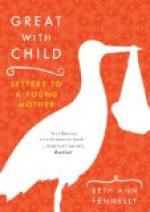The quality of our sleep will be greatly affected by the quantity. But this thought, if extended, would anticipate the subject of our next section; so easily does one thing, especially in physical education, run into or involve another. I will therefore, for the present, only say that if we confine ourselves to a smaller number of hours than is really required, our sleep becomes too sound to be quite healthy, as if nature endeavored to make up in quality, for want of due quantity. On the contrary, if we attempt to sleep longer than is really necessary to restore us, the quality of our sleep is not what it ought to be; for we do not sleep soundly enough.
The silence and darkness of the night tend to induce sleep of a better quality than the noise and activity of day. It is unquestionably desirable that children should be able to sleep, at least occasionally, without absolute quiet. And yet such sleep cannot be sufficiently sound to answer the purposes of health, if frequently repeated.
Hence it is, perhaps—at least in part—that the maxim has obtained currency, that one hour of sleep before midnight is worth two afterward. The comparison has probably been made between the quiet and darksome hours of evening and those which followed daybreak, when light, and music, and bustle conspire, as they should, to make us wakeful. No person can sleep as soundly and as effectually, when light reaches his closed eyes, and sounds strike his ears, as in darkness and silence. He may sleep, indeed, under almost any circumstances, when fatigue and exhaustion demand it; but never so profoundly as when in absolute abstraction of light, and complete quiet.
SEC. 10. Quantity.
On this point much might be said, without exhausting the subject. But I have already observed that infants, when first born, require to sleep nearly their whole time. As they advance in years, the necessity for sleep; however, diminishes, until they come to maturity, when it remains for many years nearly stationary. In advanced age, the necessity for sleep again increases, till we reach the extremest old age, or what is usually called second childhood, when we again sometimes sleep nearly the whole time.
I have already remarked that much might be said on this subject; but I do not think that the present occasion requires it. If the suggestions which are made in the chapter on “Early Rising” should receive the attention I flatter myself they merit, I do not believe children would often sleep too long. If, on the contrary, they are suffered to lie late in the morning, and then sit up late in the evening, all healthful habits and tendencies will he so deranged or broken up, that nature, in her indications, will by no means prove the unerring guide which she is wont to do in other circumstances.
A few thoughts here, on the quantity of sleep required by the young after they approach maturity, may not be misplaced.




